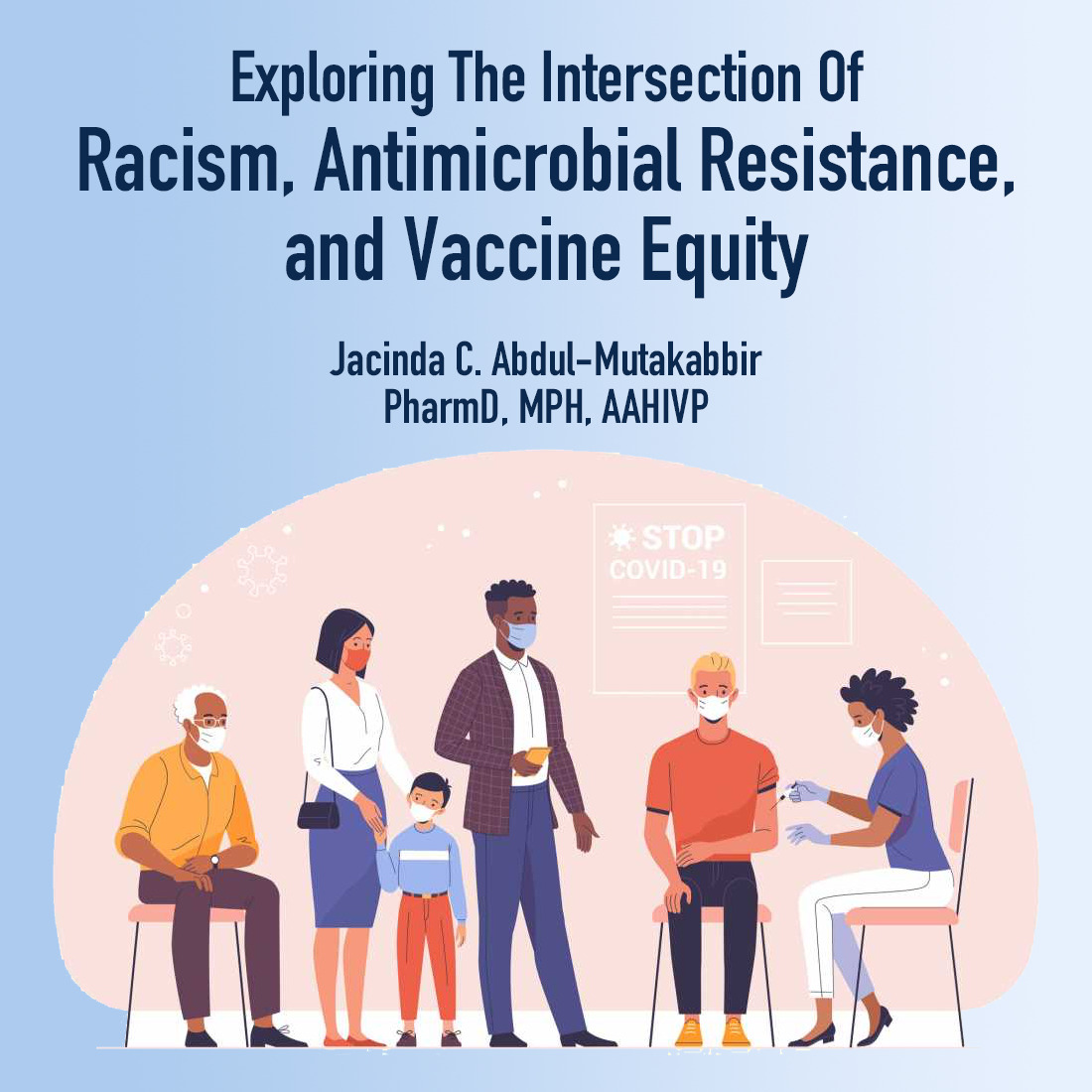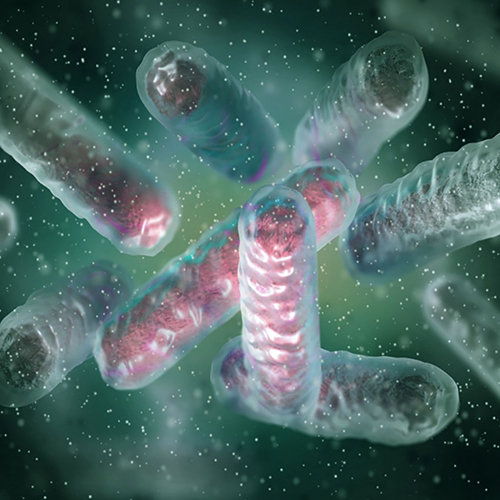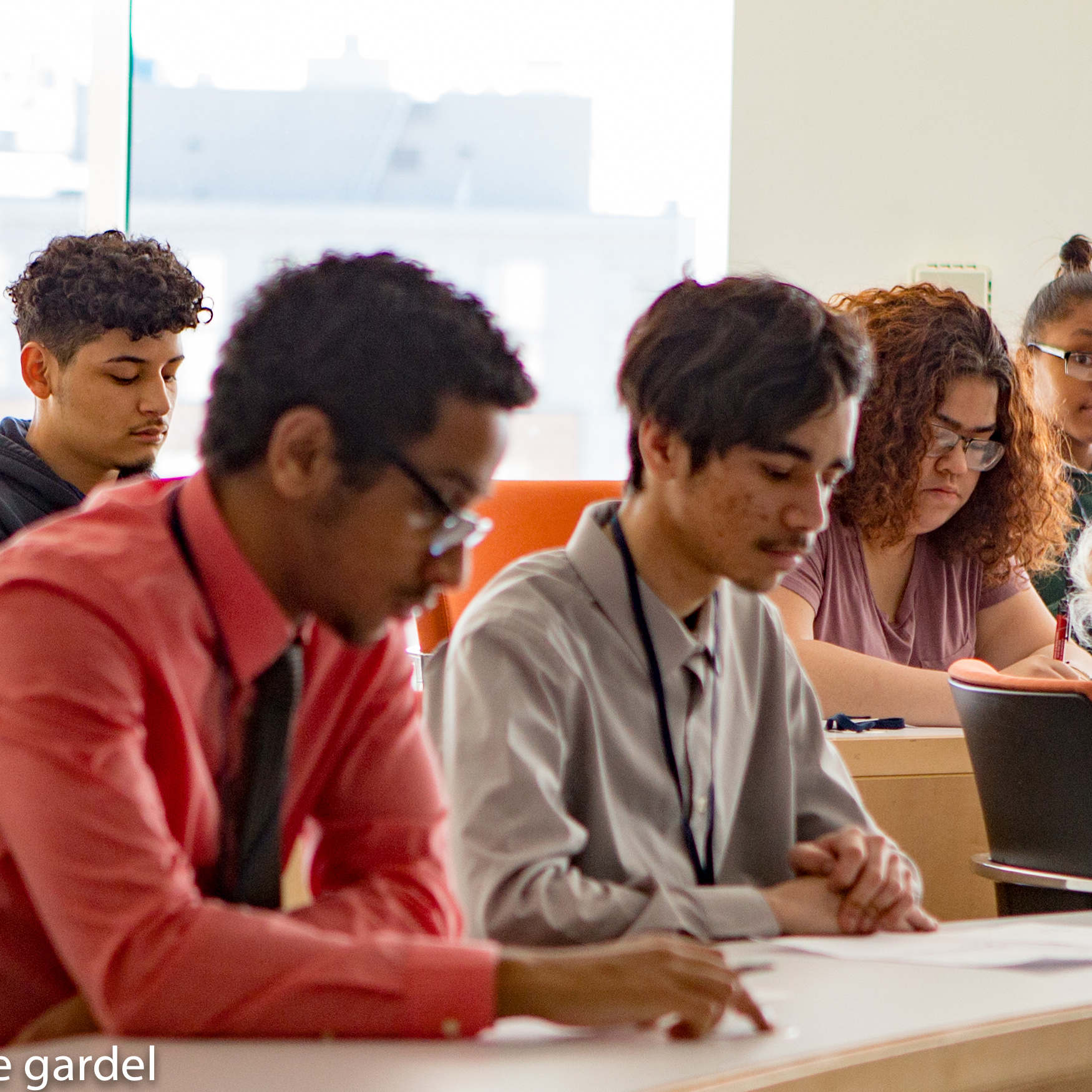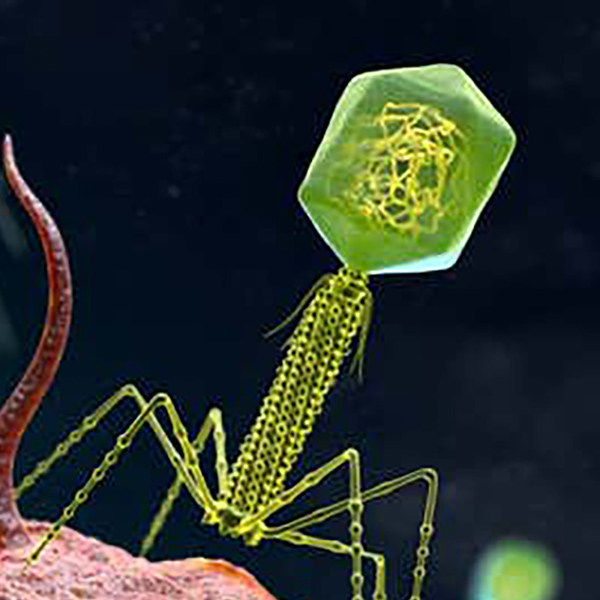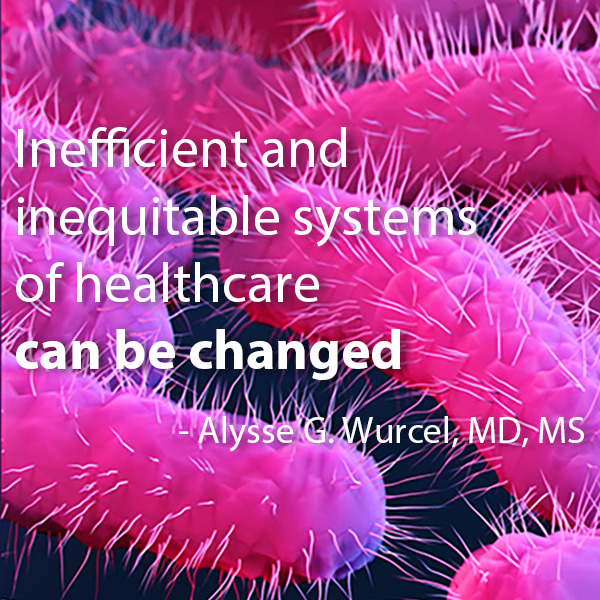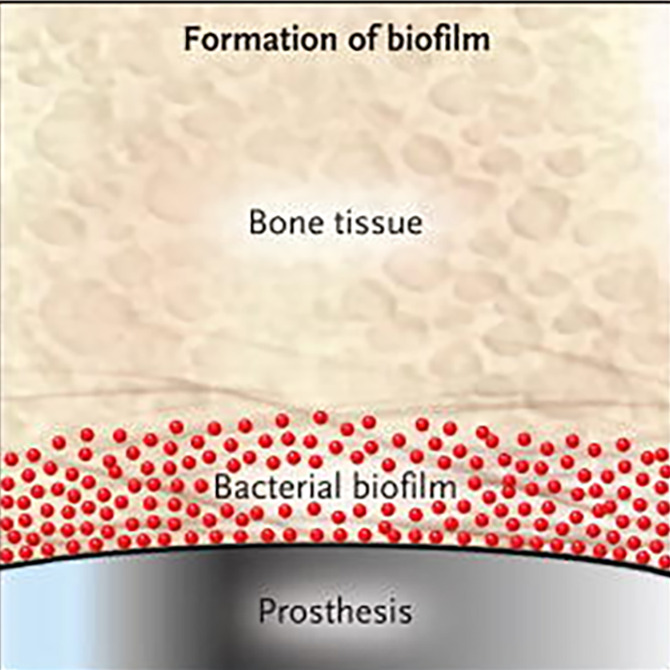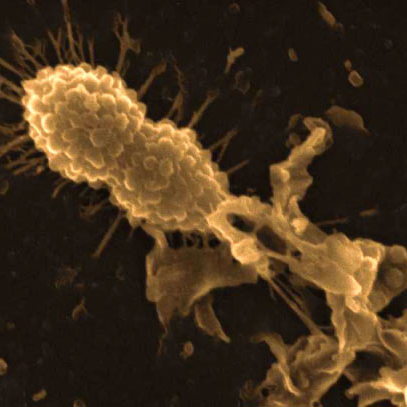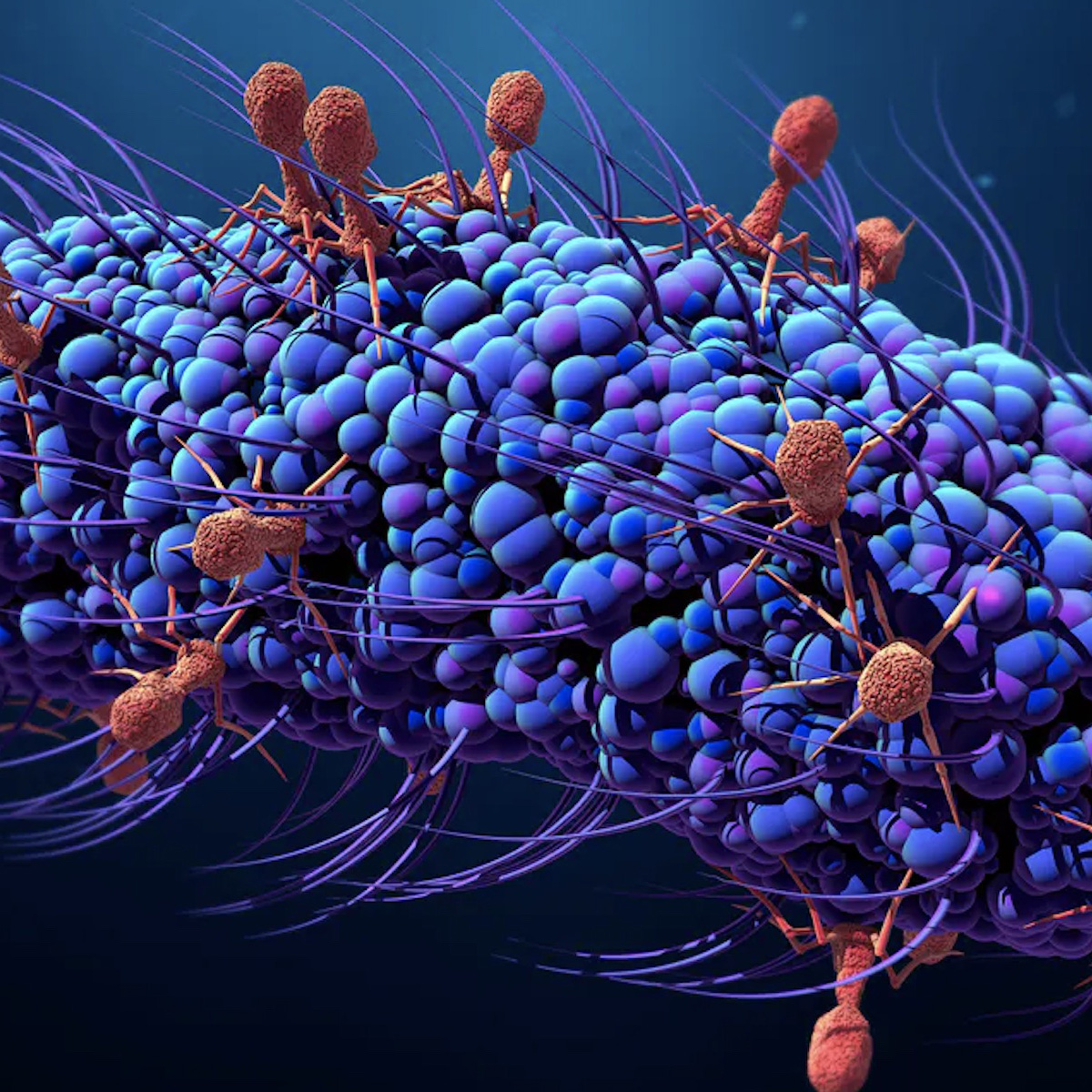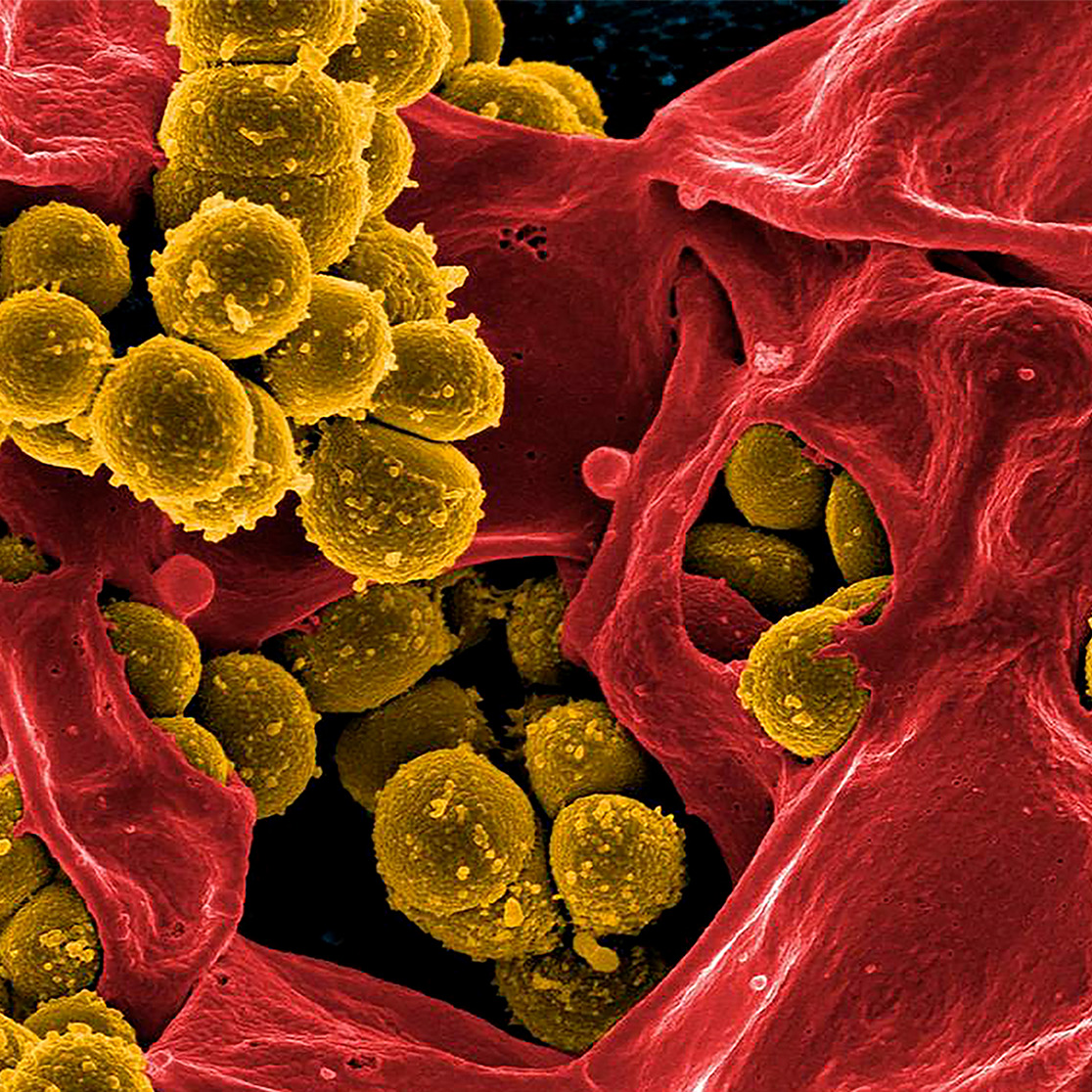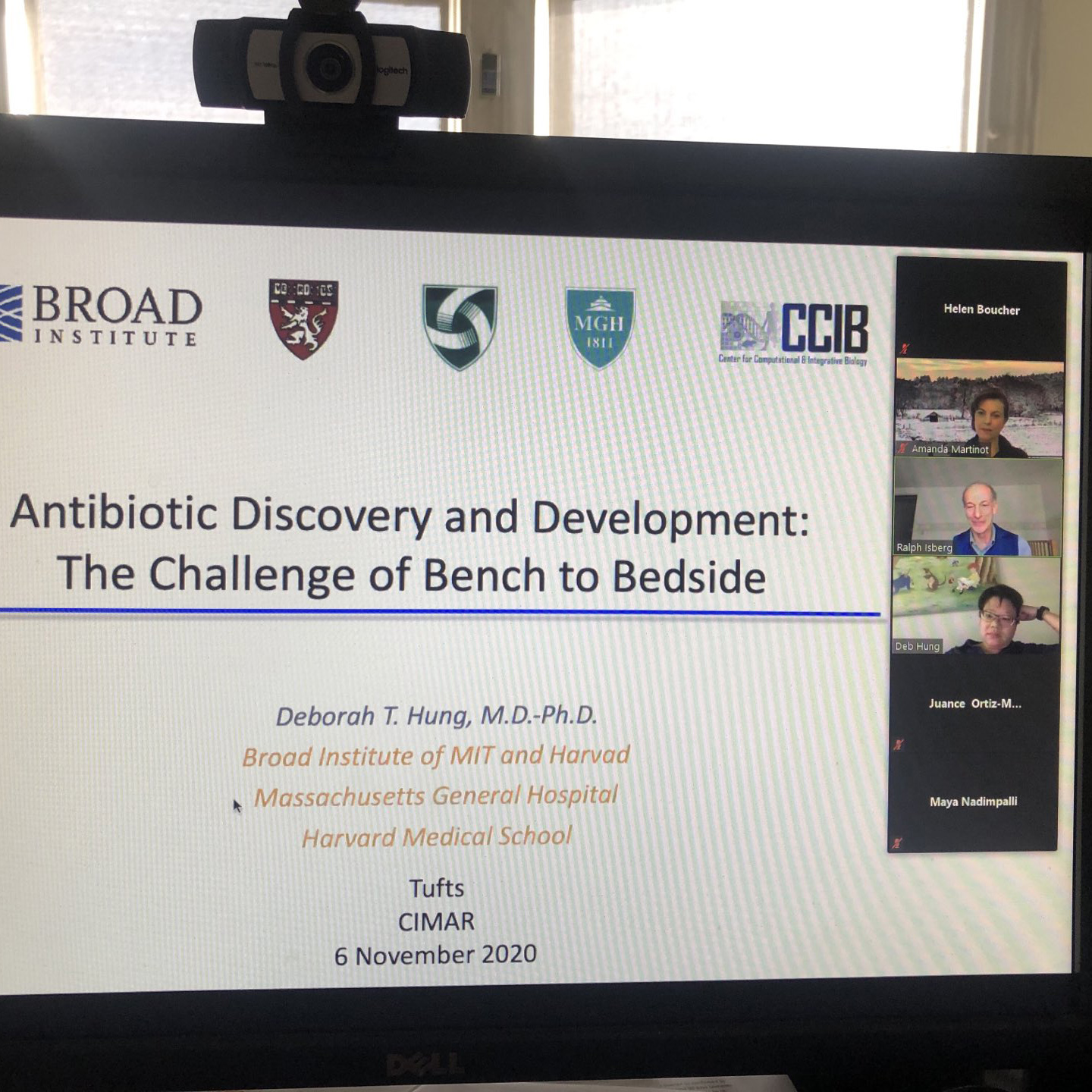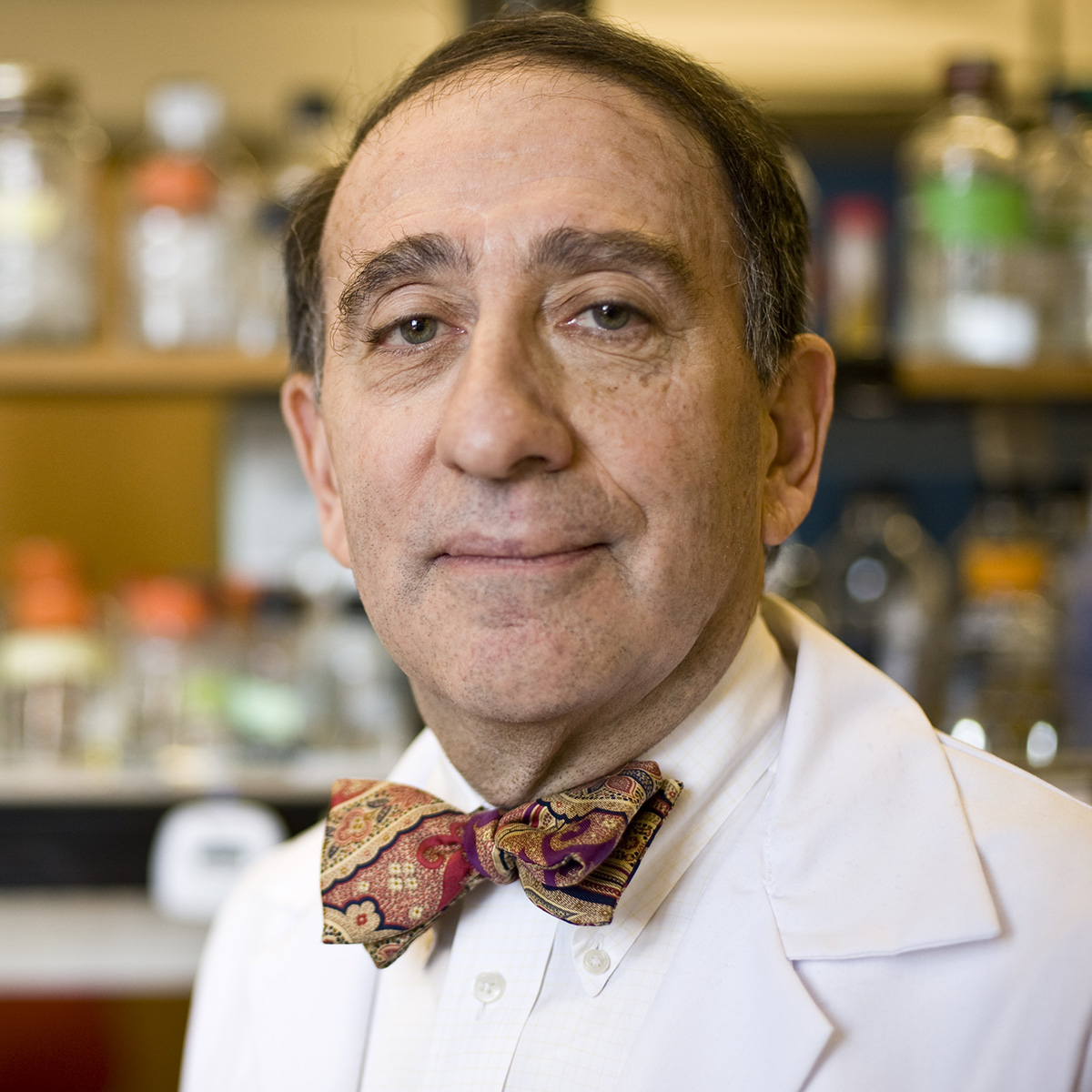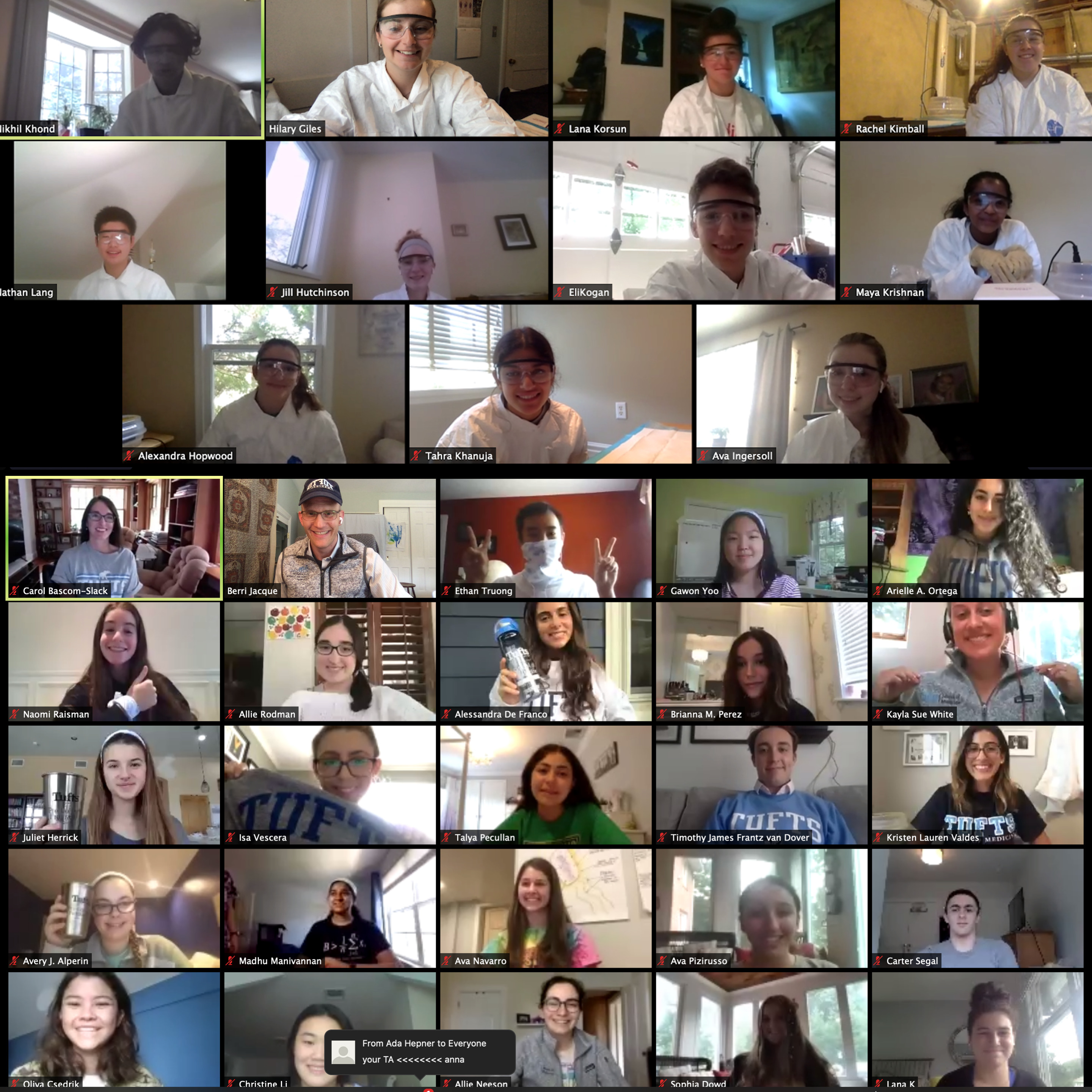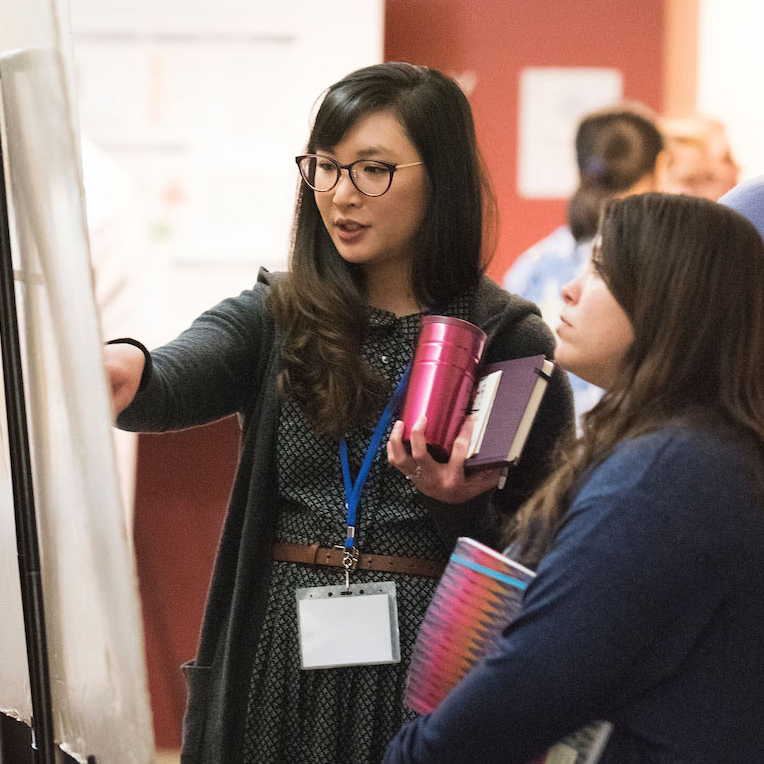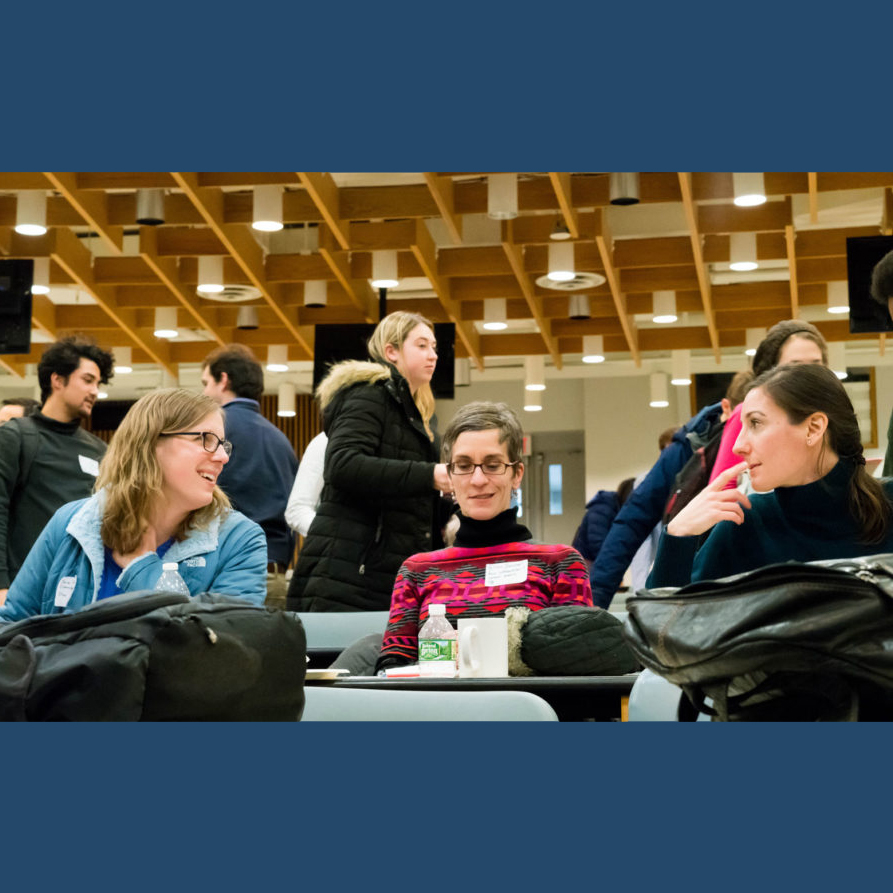Articles on Our Past Events:
-
Exploring The Intersection Of Racism, Antimicrobial Resistance, And Vaccine Equity — UC San Diego’s Jacinda C. Abdul-Mutakabbir PharmD, MPH, AAHIVP
Dr. Jacinda Abdul-Mutakabbir explores the intersection of antibiotic resistance and health/vaccine equity, with a specific focus on racial differences observed across racially and ethnically minoritized groups.
-
Diagnostic Stewardship as a Tool for Antimicrobial Stewardship – Tufts Medical Center’s Shira Doron, MD
Levy CIMAR's own Shira Doron, MD, presented for this month's Science Seminar on the topic of “Diagnostic Stewardship as a Tool for Antimicrobial Stewardship.” Dr. Doron is a widely recognized expert in the fields of antimicrobial and diagnostic stewardship, and among her many titles, is Chief Infection Control Officer for Tufts Medicine. There, she Infection Control and Antimicrobial Stewardship.
-
Discovery and Development of Novel Antimalarials and Their Use as Chemical Tools to Discover New Biology of the Malaria Parasite – WEHI’s Professor Alan F. Cowman
Prof. Alan F. Cowman heads a laboratory at WEHI where he and his team aim to advance the understanding of how malaria-causing parasites invade human cells. The seminar, "Discovery and Development of Novel Antimalarials and Their Use as Chemical Tools to Discover New Biology of the Malaria Parasite," was jointly sponsored by the Levy CIMAR, the TUSM Global Health Faculty
-
Transcriptional Profiling for Infectious Disease Diagnostics and Discovery – Massachusetts General Hospital’s Roby Bhattacharyya, MD, PhD
Roby Bhattacharyya, MD, PhD, maintains a lab at the Broad where he and his team pursue basic and translational research on pathogenic microbes, with a particular focus on antimicrobial resistance and transcriptional responses to antibiotic exposure, and on characterizing their impact on infected patients, including the immune responses elicited upon systemic infection such as sepsis or COVID-19. For today's seminar,
-
Superbugs From Their Backyards and Beyond: Brockton High Schoolers Present “Tiny Earth” Findings to Levy CIMAR; Tufts Community
CIMAR hosted 33 students from Boston-area Brockton High School last week for a rare educational and networking opportunity. Students presented posters depicting original experiments and data on antimicrobial resistance to a wide audience of Tufts University and Tufts Medical Center members.
-
Engineering Phages as Novel Antimicrobials Targeting Gram-Negative Pathogens – Massachusetts General Hospital’s Bryan Lenneman, Ph.D.
MGH Research Fellow Bryan Lenneman, PhD, is interested in utilizing synthetic biology to develop novel therapeutics against diseases associated with dysbiosis of the human gut microbial community.
-
Metabolic Modeling Predicts Unique Drug Targets in Lyme Disease Pathogen B. burgdorferi – TUSM’s Peter Gwynne, PhD
Lyme disease expert Peter Gwynne, PhD, presented on “Metabolic Modeling Predicts Unique Drug Targets in the Lyme Disease Pathogen Borrelia burgdorferi” for the Levy CIMAR's February 2023 Science Seminar. Dr. Gwynne is interested in Borrelia burgdorferi, which causes Lyme disease, and the molecular mechanisms the bacterium uses to transition between different hosts such as ticks, mice, and humans. His research
-
One Health Approach to Antimicrobial Stewardship in Companion Animals – Tufts Vet School’s Claire Fellman, D.V.M., Ph.D., DACVIM (SA), DACVCP
Tufts University Cummings School of Veterinary Medicine’s Claire Fellman, D.V.M., Ph.D., DACVIM (SA), DACVCP is interested in One Health approaches to antimicrobial stewardship in veterinary medicine.
-
The Challenge of Antibiotics Stewardship in Low Income Countries: The Case of the Democratic Republic of Congo – Tufts Vet’s Diafuka Saila-Ngita, DVM, MSc, PhD
Tufts University Cummings School of Veterinary Medicine’s Diafuka Saila-Ngita, DVM, MSc, PhD, is interested in addressing the challenges of antimicrobial stewardship in low-income nations such as the Democratic Republic of Congo.
-
Developing a Mycobacterial Research Agenda – Tufts Medical Center’s Husain Poonawala, MBBS, MPH
Tufts Medical Center’s Husain Poonawala, MBBS, MPH, is interested in tuberculosis and non-tuberculous mycobacteria, how next-generation sequencing and novel diagnostic methods can be integrated into clinical care.
-
Antimicrobial Stewardship in Jails and Prisons: When Will Then be Now? – Tufts Medical Center’s Alysse Wurcel, MD, MS
Infections of all kinds—tuberculosis, dental infections, HIV, sexually transmitted infections, COVID-19, and more—are common in jails and prisons, making these facilities places where antibiotics are frequently prescribed. Unfortunately, sometimes antibiotics are prescribed even though they are not clinically indicated, the wrong antibiotics are prescribed, or antibiotics are prescribed for too long. The Levy CIMAR's Alysse G. Wurcel, MD, MS, presented
-
Microbial Theranostics: A Resistance Combating Strategy – Mayo Clinic’s Robin Patel, MD
In the research laboratory, Dr. Patel and her colleagues focus on biofilms, which cause a large number of infections in modern clinical practice, such as prosthetic joint infection and endocarditis. She and her team are unraveling the process of biofilm formation and resistance of biofilms to antibiotics. They are developing new and improved diagnostic tools and treatment strategies for biofilm-associated
-
How HAMLET, a Human Milk Protein, Kills Bacteria and Reverses Antibiotic Resistance – Lund University’s Anders P. Håkansson, PhD
Did you know that a human breast milk protein complex called HAMLET can help reverse the antibiotic resistance of bacterial species, including penicillin-resistant Streptococcus pneumoniae and methicillin-resistant Staphylococcus aureus? Lund University’s Anders P. Håkansson, PhD, presented on his work with HAMLET today for our first Levy CIMAR Science Lunch of 2022. His talk was titled, “How HAMLET, a Human Milk
-
Phage Prophylaxis of Cholera – Tufts University’s Andrew Camilli, PhD
Bacteriophages are viruses that specifically target and kill bacteria, preventing bacterial infections, and Dr. Andrew Camilli and his lab study the bacteriophages that kill V. cholerae. Dr. Camilli is also co-founder and scientific advisor to PhagePro, Inc., a Boston-based startup aiming to use bacteriophages to prevent bacterial infections. With the unmitigated rise of antibiotic resistance and the known negative consequences of
-
From Detection to Predicting Infectious Disease and Antibiotic Resistance Outcomes: Employing Experimental Evolution, Omics-Stress Mapping and Computational Biology to Determine and Predict What Matters in Antibiotic Resistance
Tim van Opijnen, PhD, an Associate Professor of Biology at Boston College and an Affiliate member of the Levy CIMAR, presented for our May 2021 Levy CIMAR Science Lunch on his group's work on antimicrobial resistance. His talk was titled, "From Detection to Predicting Infectious Disease and Antibiotic Resistance Outcomes: Employing Experimental Evolution, Omics-Stress Mapping and Computational Biology to Determine
-
Monoclonal Ab treatment for SARS CoV2 infection
Veterinary pathologist Amanda J. Martinot (DVM, MPH, PhD) of the Tufts University Cummings School of Veterinary Medicine presented for our Monthly Science Meeting on Thursday, January 28, on two articles of interest in the COVID-19 pandemic: The first on the pre-clinical results for the Regeneron monoclonal Ab for SARS CoV-2 in hamsters and monkeys (Science), with additional discussion of the
-
Trials and Tribulations of Antimicrobial Drug Development: Assessing the Economic and Political Landscape
As an internationally recognized expert on drug development science and policy, the Levy CIMAR's Dr. Kenneth I. Kaitin writes and speaks regularly on factors that contribute to the slow pace and high cost of pharmaceutical R&D and efforts to improve the development process. He has provided public testimony before the U.S. Congress on pharmaceutical development, regulation, and policy issues, and
-
Levy CIMAR Promotes One Health, Collaboration Through “Fighting AMR Together” Workshop
The Levy CIMAR hosted our second annual collaborative workshop titled “Fighting AMR Together” earlier this month, offering a platform for investigators and clinicians to showcase their research and promoting opportunities for partnership both within and outside of the Tufts network. The two-day workshop, held Nov. 5-6, 2020, began with welcoming remarks from Levy CIMAR Director Helen Boucher, MD, Senior Leadership
-
Dedication of the Stuart B. Levy CIMAR at Tufts
We at the Levy CIMAR are honored to be named for Dr. Stuart B. Levy, whose pioneering work in fighting antibiotic misuse and resistance was a key inspiration behind our Center. During his more than four decades at Tufts University and Tufts Medical Center, Dr. Levy led the paradigm shift in how we view antibiotic use and stewardship. In his
-
CIMAR Faculty Support Virtual ‘Mini’ Med School to Engage High Schoolers
Tufts Mini-Med School dovetails with CIMAR’s mission in that it is uniquely interdisciplinary in its One Health approach. The program draws on an array of schools beyond the School of Medicine dedicated to the health science and medicine at Tufts University, including: the School of Dental Medicine, the Cummings School of Veterinary Medicine, the Friedman School of Nutrition Science &
-
CIMAR Outreach Day Provides High Schoolers Rare Educational and Networking Opportunities
CIMAR hosted 33 students from Boston-area Brockton High School last week for a rare educational and networking opportunity. Students presented posters depicting original experiments and data on antimicrobial resistance to a wide audience of Tufts University and Tufts Medical Center members.
-
Breaking the Chain of Infection: Tufts@Kendall Event Connects Tufts Researchers and the Biomedical Industry
Tufts and MassBio held the first Tufts@Kendall event, bringing together CIMAR researchers and clinicians with more than 80 members of the biomedical community to discuss the latest advances in infectious disease and antimicrobial resistance at Tufts University.
-
Drug-Resistant Superbugs: CIMAR Symposium Examines the Intersection of People, Animals, Food, and the Environment, and Their Impact on Health
The event brought together over 175 clinicians and researchers from academia, medicine, and industry, all interested in fighting drug-resistant diseases via a “One Health” approach. One Health prioritizes the relationship among people, animals, the environment, and the foods we all consume as critical avenues by which drug-resistant bacteria spread from one to another
-
CIMAR Joins the Battle Against AMR with Collaborative and Brainstorming Workshop
The Tufts Center for Integrated Management of Antimicrobial Resistance (CIMAR) hosted its first event last month to introduce the Center to the local scientific community and to offer a platform for investigators and clinicians to showcase their research and promote collaborations.





 Please join us for a Levy CIMAR Seminar from
Please join us for a Levy CIMAR Seminar from  Please join us for a seminar from Brown University’s Christina Cuomo, PhD, a Professor of Molecular Microbiology & Immunology who works to identify mechanisms of virulence and drug resistance that can be used to guide and refine treatment decisions. Dr. Cuomo will present on “Genomic Epidemiology and Evolution of Drug Resistance in Candida auris” on Thursday, March 28th, at 12 noon both in person and by Zoom (details to come).
Please join us for a seminar from Brown University’s Christina Cuomo, PhD, a Professor of Molecular Microbiology & Immunology who works to identify mechanisms of virulence and drug resistance that can be used to guide and refine treatment decisions. Dr. Cuomo will present on “Genomic Epidemiology and Evolution of Drug Resistance in Candida auris” on Thursday, March 28th, at 12 noon both in person and by Zoom (details to come). We are excited to announce that Jacinda Abdul-Mutakabbir, PharmD, MPH, AAHIVP will present on “The Intersection of Racism, Antimicrobial Resistance, and Vaccine Equity” for a Black History Month seminar sponsored jointly by Micro DEI, the Levy CIMAR, and the Tufts Graduate School of Biomedical Sciences. This talk will take place on Thursday, February 29th, 2024 at 12 Noon both in person and by Zoom (details to come).
We are excited to announce that Jacinda Abdul-Mutakabbir, PharmD, MPH, AAHIVP will present on “The Intersection of Racism, Antimicrobial Resistance, and Vaccine Equity” for a Black History Month seminar sponsored jointly by Micro DEI, the Levy CIMAR, and the Tufts Graduate School of Biomedical Sciences. This talk will take place on Thursday, February 29th, 2024 at 12 Noon both in person and by Zoom (details to come). 